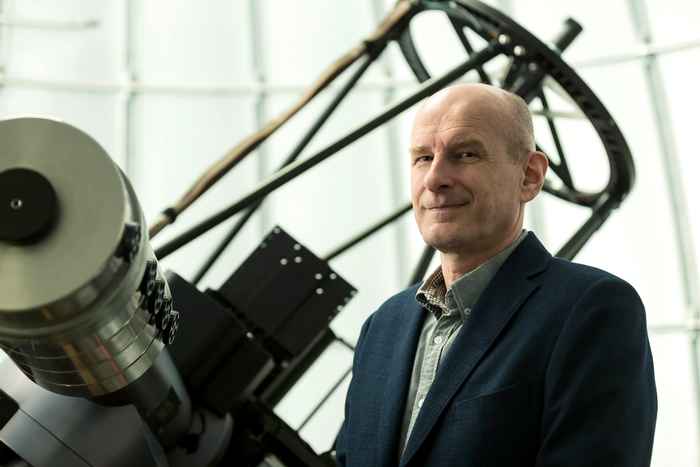Kees de Jagerprijs for Alex de Koter
13 May 2024

Alex de Koter (1964) is professor of astronomy at the University of Amsterdam and at KU Leuven. He studies massive stars and lectures on various astronomical topics to undergraduate and graduate students.
De Koter has been involved in the creation of several textbooks for the subject of high school physics since 2013. In the so-called “new physics”, there's more room for astronomy than before. De Koter helped ensure that astronomy in a number of textbooks was modernized to match what is happening in science.
In addition to his efforts on high school physics, De Koter was one of the driving forces behind the revamped master's program in astronomy at the University of Amsterdam. Among other things, he ensured that the various subjects are better coordinated with each other.
The Kees de Jager Prize jury praised, among other things, the team spirit De Koter creates in his classes. “He makes everyone feel at home and seen and appreciated. The students are involved in developing ideas and finding solutions.” The evaluations show that, too. De Koter invariably receives the highest grades from students of any subject in the astronomy program at the University of Amsterdam.
About the Kees de Jager Prize
The Kees de Jager Prize for astronomy education is named for the renowned astronomer Prof. Cornelis (Kees) de Jager (1921-2021). De Jager made exceptional contributions to astronomy education and the popularization of research. The prize will be awarded every three years from 2024 to a professional astronomer or space researcher who has made exceptional, lasting or innovative contributions to education in astronomy and/or space research, in the Netherlands or Flanders. The prize, awarded by the Royal Dutch Astronomy Club (KNA), carries a sum of 1,500 euros.